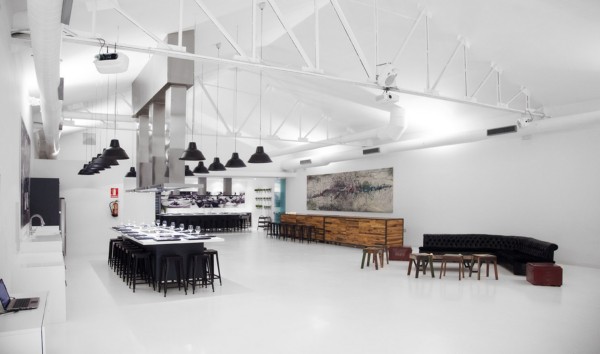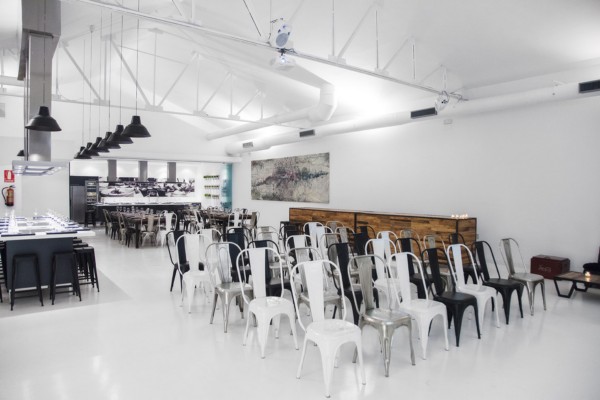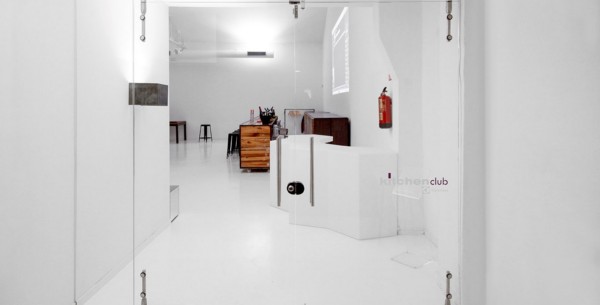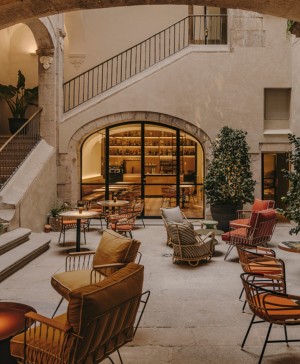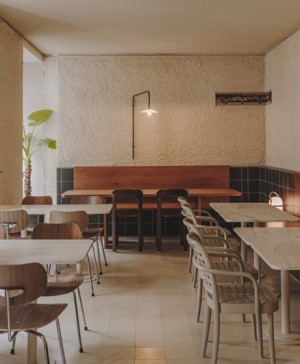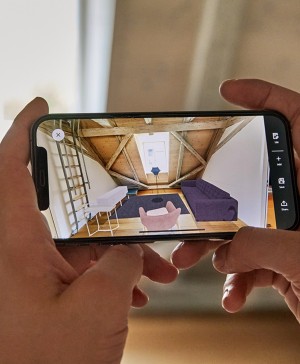An old mechanic’s workshop in Madrid turns into a kitchen club by Carlos Pascal Bayón.
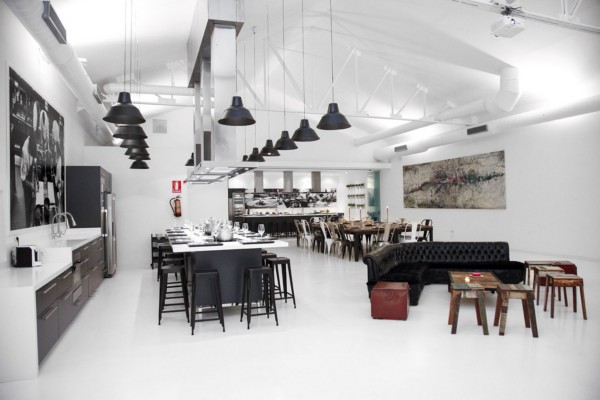 Kitchen Club is a cooking school and gastronomic space where private clients, groups of friends or businesses can carry out culinary experiences. It's a space to learn and enjoy in, and share the joy of cooking. It has been created by the architect and interior designer Carlos Pascal Barayón and fitted out by Mobalco.
Kitchen Club is a cooking school and gastronomic space where private clients, groups of friends or businesses can carry out culinary experiences. It's a space to learn and enjoy in, and share the joy of cooking. It has been created by the architect and interior designer Carlos Pascal Barayón and fitted out by Mobalco.
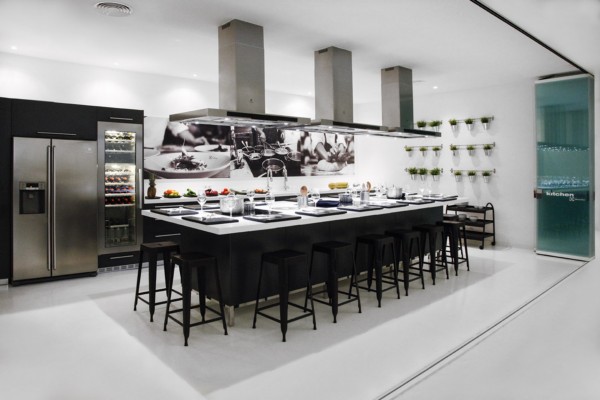 Kitchen Club opened its first locale in 2010 in Ballesta street and is now doubling its offer with a new space in General Pardiñas. The new premises has an open-plan surface area of 250 metres and two kitchens, which can operate at the same time and can accommodate up to 20 people in each one.
Kitchen Club opened its first locale in 2010 in Ballesta street and is now doubling its offer with a new space in General Pardiñas. The new premises has an open-plan surface area of 250 metres and two kitchens, which can operate at the same time and can accommodate up to 20 people in each one.
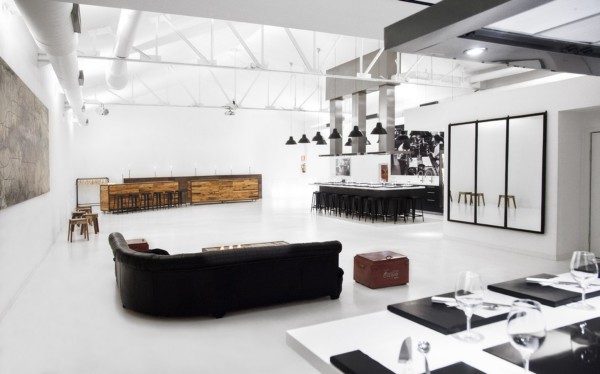
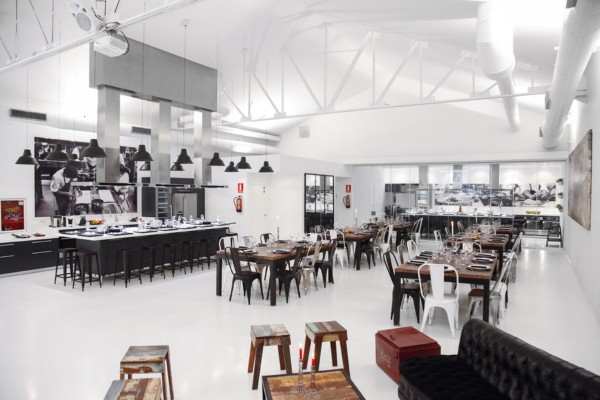
With these base concepts, the space can be totally personalised for each event, be it a lunch or private dinner, a ‘showcooking’ session or competitions. «Just like a huge blank screen that can accommodate projections or images on its walls,» says the designer. For Bayón, the space is like a ‘box within a box’; it has been sound-proofed and insulated with white walls and a roof by Pladur. The floor has been painted too with a white epoxy resin.
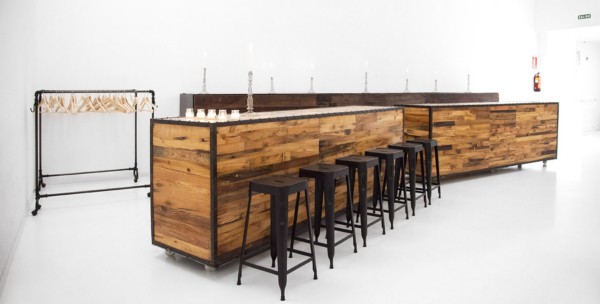 The result is a large, multifunctional room that features two generous and easy to use kitchens. One has been conceived for show cookings whilst the other can join the large space or work independently of odours and noise thanks to glass panels. The office and service areas are in another ‘cube’ that is accessible from both kitchens.
The result is a large, multifunctional room that features two generous and easy to use kitchens. One has been conceived for show cookings whilst the other can join the large space or work independently of odours and noise thanks to glass panels. The office and service areas are in another ‘cube’ that is accessible from both kitchens.
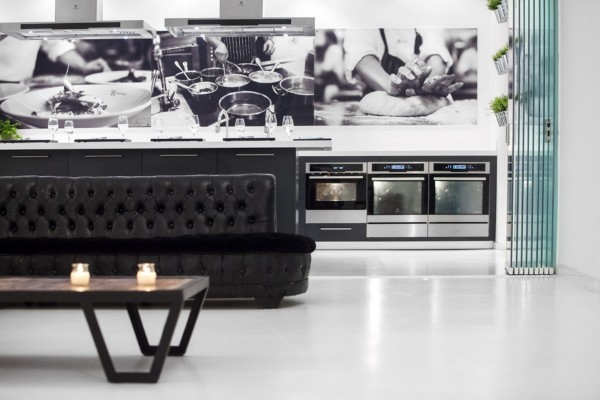
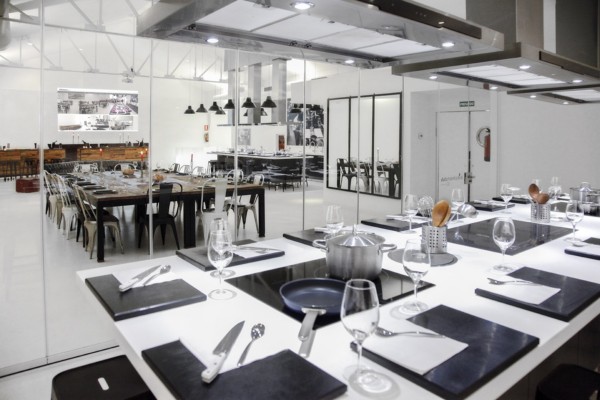
The work areas, which have been placed in two large and central ‘islands’, are supported by a reinforced steel structure. This design, which has been bestowed with large, open spaces in order to facilitate access to common utensils, can also accommodate prep work around its perimeter, as well as later tasting.
The fittings include generous antibacterial work surfaces in 5cm thick white Corian, pedal operated taps (a vital feature of professional kitchens) and large scale rubbish and scrap disposal systems.
Lastly, the kitchen equipment has been supplied by the professional ‘Inspiration’ range by Electrolux. They include equipment for steaming and hobs where the entire surface can be used and react immediately and precisely to temperature control.
Kitchen Club General Pardiñas, 103 Ballesta, 8 Madrid Tel. 91 522 62 63 www.kitchenclub.es

